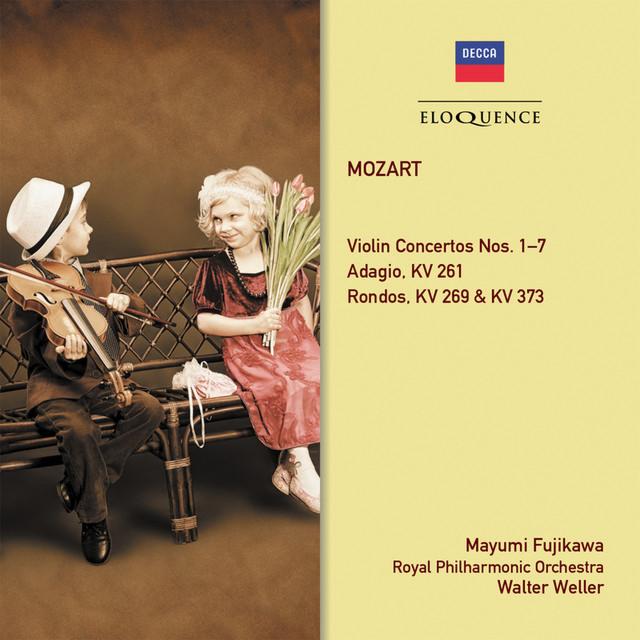Mozart’s precocious genius was as a keyboard player and composer and his father proudly paraded these gifts of his all over Europe; but Wolfgang also played the violin – Leopold’s own instrument, for which he had written a tutor that was to become famous – and throughout the years he lived at home he was constantly being urged to devote himself more whole-heartedly to it and scolded for his lack of commitment. It is significant that after he left Salzburg for Vienna in 1781, he did not touch the violin again, and scarcely wrote further for it as a solo instrument. Then suddenly, in 1775, at the age of nineteen, he wrote five concertos within the space of nine months. Together with some of the shorter movements for violin and orchestra – two Rondos and an Adagio – they are issued, coupled with the Sixth and Seventh Concertos (of partial, possibly doubtful authenticity). The original 4-LP set is here released internationally, complete on Decca CD for the first time and includes the original LP notes by Lionel Salter.
WOLFGANG AMADEUS MOZART
Violin Concerto No. 1 in B flat major, KV 207
Violin Concerto No. 2 in D major, KV 211
Violin Concerto No. 3 in G major, KV 216
Violin Concerto No. 4 in D major, KV 218
Violin Concerto No. 5 in A major, KV 219
Rondo in B flat major, KV 269
Adagio in E major, KV 261
Rondo in C major, KV 373
Violin Concerto No. 6 in E flat major, KV 268
Violin Concerto No. 7 in D major, KV 271a
Mayumi Fujikawa
Royal Philharmonic Orchestra
Walter Weller
Recording Producers: Andrew Cornall (Nos. 3 & 5); Michael Haas (Nos. 1, 2, 4, 6 & 7, Adagio KV 261, Rondos KV 269 & 373)
Balance Engineers: John Dunkerley (Nos. 1, 2, 3, 5 & 6, Adagio KV 261, Rondos KV 269 & 373); Arthur Lilley (Nos. 4 & 7)
Recording Location: Kingsway Hall, London, UK, 17–18 April 1979 (Nos. 3 & 5), 9–10 February 1980 (Nos. 4 & 7), 16 September 1980 (No. 1, Rondo KV 373), 3–4 October 1980 (Nos. 2 & 6, Adagio KV 261, Rondo KV 269)
‘Fujikawa brings unexpected sparkle to the finale of the Second Concerto. She is at her best in the marvelous Adagio of the G major which she sustains most beautifully at an unusually slow tempo … There is plenty of polished, stylish orchestral playing … the B flat Rondo is wholly entrancing’ Gramophone

